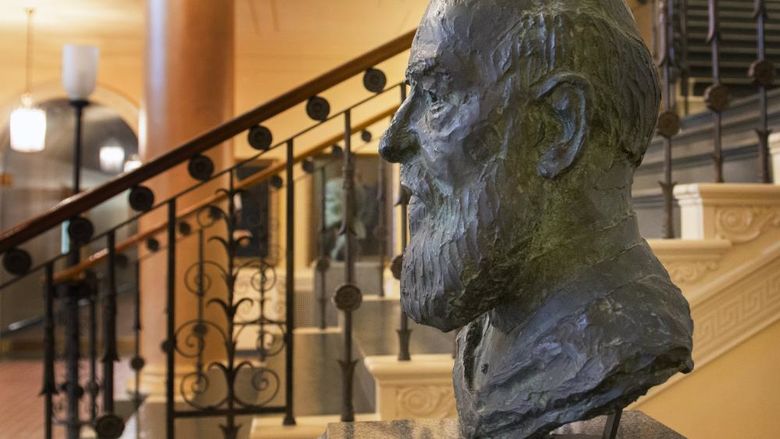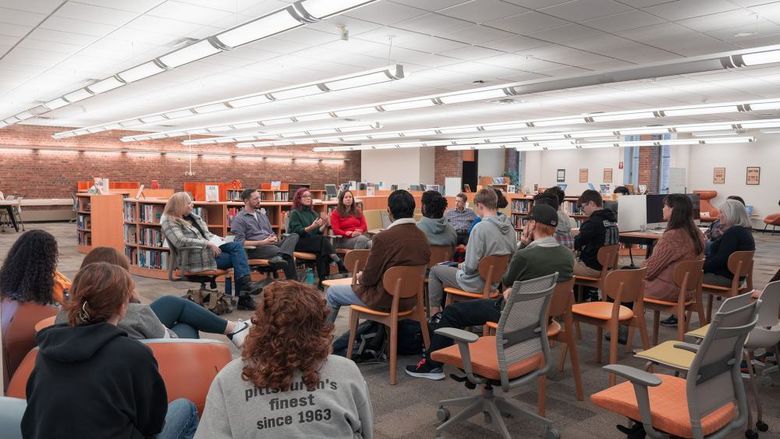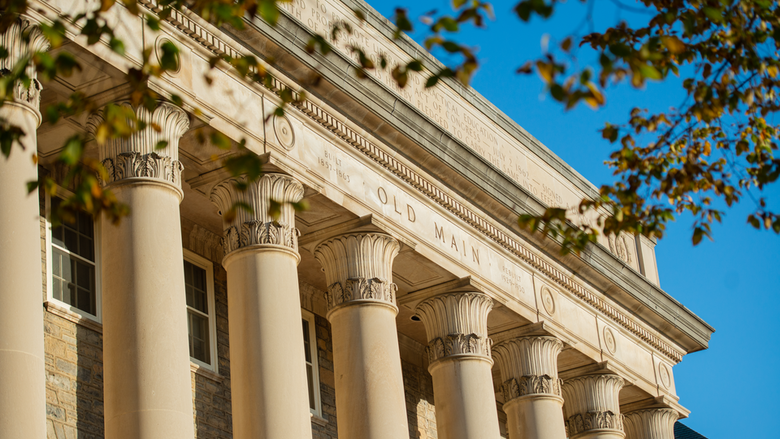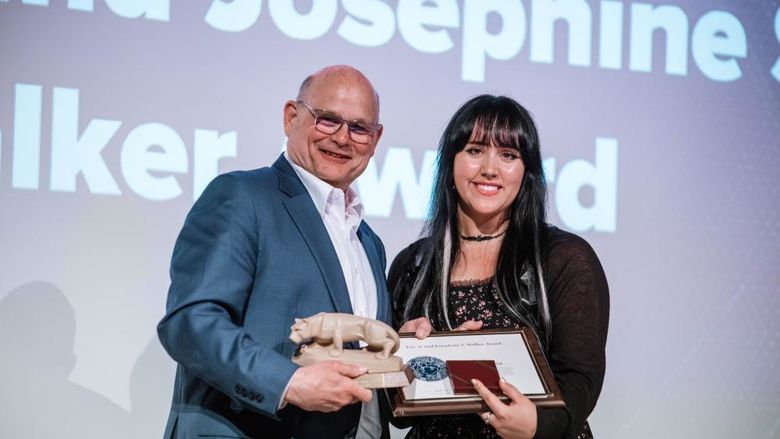UNIVERSITY PARK, Pa. — Wendy Hanna-Rose, interim department head of the Department of Biochemistry and Molecular Biology and associate professor of biochemistry and molecular biology in the Eberly College of Science and Jyotsna (Josi) M. Kalavar, professor of human development and family studies at Penn State New Kensington; are the recipients of the 2018 Milton S. Eisenhower Award for Distinguished Teaching.
The award recognizes excellence in teaching and student support among tenured faculty who have been employed full time for at least five years with undergraduate teaching as a major portion of their duties. Milton S. Eisenhower, brother of former U.S. President Dwight D. Eisenhower, served as president of Penn State from 1950 to 1956.
Wendy Hanna-Rose
Hanna-Rose said recognition for teaching abilities early in her career inspired her to continue a path toward developing as a truly effective educator.
“When I was a new professor, I enjoyed teaching and my students responded positively to my efforts,” Hanna-Rose said. “However, I knew little about teaching and learning. Fortunately, the awards I won led to engagement with peers and to the formation of an invaluable community focused on science pedagogy that has fostered my transformation from a popular teacher to a highly effective one.”
Hanna-Rose aims to expand her students’ expertise. To that end, she communicates her expectations, provides the material and motivation to engage the concepts, implements activities for students to apply the newfound knowledge and concludes lessons by allowing students to incorporate these new understandings into their existing knowledge.
Motivating students is a core part of the learning process for Hanna-Rose, and she said she had to learn how to develop student motivation on multiple levels to become an effective educator.
“Sharing my joy in the material as well as my joy of teaching and learning promotes motivation for my students,” Hanna-Rose said. “However, constantly striving to challenge students also led to disengagement when students had trouble achieving success. I didn’t fully understand the impact of failure on student motivation because I personally thought trying was fun. So I redesigned learning activities to allow for success in a step-wise fashion, building a sense of accomplishment throughout the learning process.”
Hanna-Rose said it’s rewarding to shape a legacy of students who achieve even greater success in their lives and careers. She’s always trying to produce critical thinkers and lifelong learners.
“I chose Penn State as an environment where I could combine two passions: doing and teaching science. Seventeen years later, I am proud to have developed a teaching approach that is integrated with my scholarship, effective for my students and is personally fulfilling.”
A student said Hanna-Rose’s lessons and teaching methods continue to pay dividends as she continues her education.
“In my current classes, when I am taught completely new material or am challenged with a difficult question I am able to navigate the issue and form thoughtful answers and follow-up questions,” the student said. “This is a skill that I will forever use, and what stands out to me as the most valuable part of my education.
A colleague said her peers, too, are learning from Hanna-Rose.
“Hanna-Rose’s exceptional commitment to undergraduates serves as a model within the department,” the colleague said. “She is a champion for our teaching mission and is elevating expectations within the department.”
Jyotsna (Josi) M. Kalavar
Kalavar said when students are successfully able to speak and respectfully listen to varied perspectives, the catalyst for learning is set in motion. She said the resulting collaborative learning environment strengthens professional competencies and promotes lifelong learning.
“One of the challenges of teaching a human development course is to present how people are alike yet unlike one another,” Kalavar said. “I strive to do this through an infusion of multicultural perspectives and nurturing the learning environment for students to discover their voices based on observations and life experiences.”
Kalavar said she loves to teach and enjoys interacting with students in the classroom. She believes in the power of learning and wants to make her students more effective communicators, successful scholars and well-informed and active citizens.
"Regardless of the accolades earned, if you are passionate about teaching, you never stop learning how to teach effectively,"
Kalavar said. “I believe a good teacher must be actively involved in the scholarship of his or her own discipline. It’s only by pushing the frontiers of one’s own knowledge that one is able to genuinely convey the excitement of discovery and developmental changes in the human experience within the classroom.”
Students praised Kalavar’s ability to connect and engage them with the course material.
“Dr. Kalavar doesn’t always treat her class time as ‘lecture time’ but as an opportunity to engage and interact with her students,” a student said. “In her lectures she focuses on the big picture. I instantly gained a deeper appreciation and better understanding for the topic at hand. Her natural compassion is evident through her intense dedication to student learning and achievement.”
Colleagues praised Kalavar’s efforts outside the classroom aimed at improving education. Under Kalavar’s leadership, the campus for several years has identified a country of focus that’s emphasized in course assignments and campus-sponsored events. This approach brings a world view to New Kensington, colleagues said.
“Kalavar is a gifted teacher whose lessons extend far beyond the classroom,” a colleague said. “She brings the world to us.”




